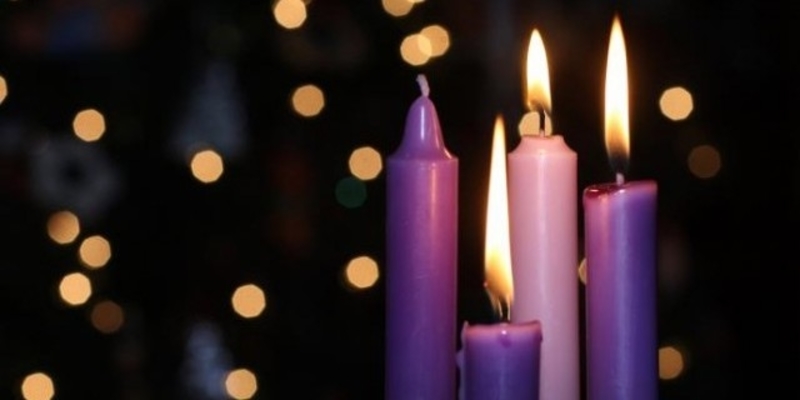
Once again we hear the story (or part of the story) of John the Baptist, but this time it comes from the Gospel of John. In this version there is no camel hair clothing, no locusts and wild honey, no frantic calls to repent or accusing the Pharisees of being a brood of vipers. There isn’t even a reference to “the wilderness,” since all this takes place in Bethany, across the Jordan. So the image of John in the fourth gospel is very different from Mathew, Mark, and Luke. It is, by comparison, rather tame. But although tame, it is still vitally important.
Today’s gospel passage is important because it tells what John’s role is and how he lives that role.
John came as a witness to testify. In today’s gospel that is his main function. He does baptize, but that is secondary to being a witness and testifying to the light.
In this exchange we have John as a witness testifying to the light — to Jesus, — and not only testifying to Jesus, but removing himself from the spotlight. This is equally important.
What does it mean to testify to the light? Do we imagine ourselves as witnesses to the light as the first expression of God’s presence in the world? Do we think of ourselves as witnesses to the light which shines in the darkness — the Light that will soon shine into the bleakness of our world? In this time of anticipation, perhaps we can: shine the light of God’s presence into the shadows of our human brokenness; bring good news to the oppressed; bind up the broken-hearted; proclaim liberty to the captives; and release those imprisoned to freedom.
Today is Rose Sunday, known for its emphasis on rejoicing. It marks the half-way point in Advent and it gives us a little break from the solemn nature of the season so that we might evaluate where we are in our preparation for the coming of the light into the world. But in our current world maybe rejoicing isn’t the first thing that comes to mind.
How often do we hear people longing for ‘the good old days’ — That is pre-St. Patrick’s Day — pre-pandemic days. When it comes to our present situation, there’s often a general feeling of resignation in our society waiting for the vaccine. As we look at the Covid-19 world around us and our own circumstances, many generally respond with the well-worn and fatalistic cliché, “It is what it is.” And most of us don’t want even to think about the future. What kind of world will our children and our grandchildren face?
But, today John brings God’s message of better things to come. His message, as one sent from God, was a message of hope and a promise of greater things to come. With the coming Saviour there would soon be cause for great rejoicing.
God wants us to give hope to this world. He wants us to be people of hope. He wants us to be people who see beyond the brokenness of this world to His promise of Grace brought to this world as the Babe born in a manger on Christmas.
John tells us that John the Baptist was a “witness to the light.”
“There was a man sent from God, whose name was John. He came as a witness, to bear witness about the light, that all might believe through him. He was not the light, but came to bear witness about the light.”
John is not someone acting on his own authority. He is not someone who just one day felt like baptizing people and calling them to repentance and belief. No, John had been called by God to this work.
We too are all called to be witnesses to Jesus and His Gospel, are we not? We did not know Jesus when He was on earth two thousand years ago, but we have met Him through the Word and the Sacraments. We are witnesses to what God has said and convinced us to be the truth. We know Who He is and why He came. Yes, we too are called to be witnesses – like John the Baptist – to Jesus and His Gospel so that other people would hear our witness about Jesus and, if God is pleased, they will believe that Jesus is the Promised Savior – the Way to salvation – the Way to be right with God.
How heart-wrenching must it have been for John to witness to the Light — to Jesus the Christ — before the leaders of the Church in Israel and have them not understand — not wanting to understand?
We are witnesses to the Light — and the testimony of a true witness does not change — the Gospel message does not change. We are called to repent of our sins and strive to grow in obedience to God and grow in our faith.
John saw very clearly that his ministry was about another, not himself. John, for all his eccentric style and controversial preaching, was not there to draw attention to himself. John’s life and ministry were about pointing people to the coming of Jesus. Sometimes we need to be reminded- it is not about me. Our whole life must now be spent in service to the one who bought our freedom. We are not the light. We are witnesses to tell others about the light.
The John of the fourth gospel has a lot to show us. During this Advent season of preparation for the coming of Christ, let us follow John’s example by remembering that we are witnesses for Christ, always testifying to the light; offering people the opportunity to explore our claims for themselves; and remembering it’s not about us, but it’s always about Jesus.
May we go from here as witnesses for Christ, testifying to the light.
Prayer
Father I acknowledge that too often my thoughts centre on me and on what pleases me.
Help me to be like John the Baptist and understand that it’s not about me — It’s all about You. Amen.
-Dcn. Terry Murphy

